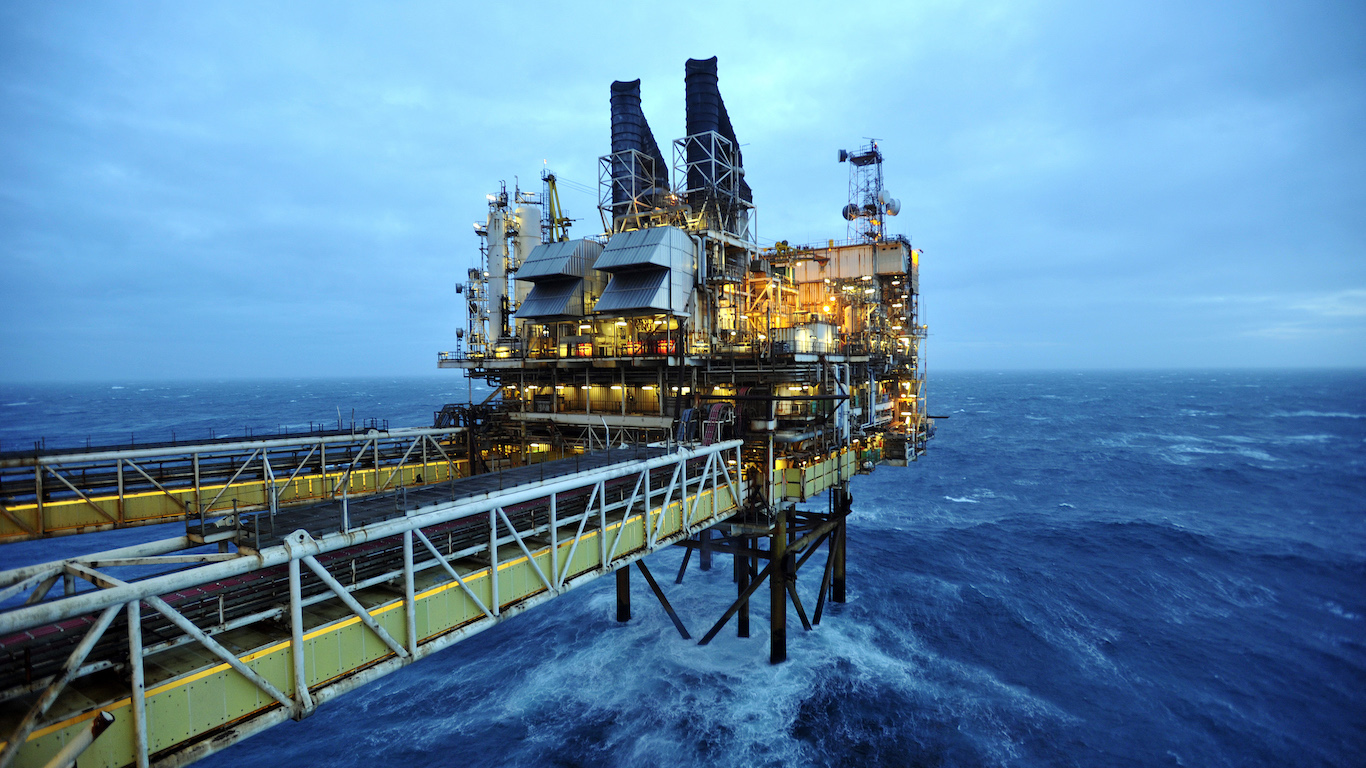
Integrated oil & gas supermajor BP plc (NYSE: BP) reports second-quarter results before markets open Tuesday. There shouldn’t be too many surprises given that BP has already warned on a massive writedown, received a fresh ingestion of liquidity, and sold virtually all of its petrochemical business.
Analysts expect an adjusted loss per share of $1.10 on revenue of $42.8 billion. In the same quarter last year, BP reported earnings per share (EPS) of $0.84 and revenue of $72.7 billion. Low prices driven by a lack of demand due to the global COVID-19 pandemic are going to get the blame, in much the same way that both Exxon Mobil and Chevron laid their poor quarterly performance at the feet of the coronavirus.
The big question is how much longer BP can pay its $2.52 annual dividend per American Depositary Share (ADS). At a price of around $22 per ADS, the company’s dividend yield is more than 11%. BP paid $2.1 billion in dividends in the first quarter on underlying replacement cost profit (essentially net income) of $791 million.
BP has indicated that it will take an impairment charge of up to $17.5 billion on the value of its reserves. When it announced the impairment in June, the company said that it expects the pandemic to have “an enduring impact on the global economy, with the potential for weaker demand for energy for a sustained period.”
To give itself so balance sheet relief, BP issued some $12 billion in several offerings of hybrid notes that require only that interest be repaid. If BP goes broke, the noteholders go to the end of the line for repayment.
Privately held Ineos has agreed to acquire BP’s global petrochemical business for $5 billion to add more strength to BP’s balance sheet. The deal is expected to close before the end of the year.
There could be more writedowns announced Tuesday or even later in the year. The company has said it is reviewing plans to explore some of its assets. If it chooses not to explore, the carrying value of those assets drops, maybe to zero.
Likewise, the company has not written down property, plant, or equipment assets. Combined with the possible exploration writedowns, BP could be looking at additional impairments totaling up to $4.5 billion.
BP’s stock traded at $22.08 in the mid-afternoon Monday in a 52-week range of $15.51 to $40.08. The consensus price target on the stock is $31.09. Shares have lost more than $6 apiece since mid-June.
Credit Card Companies Are Doing Something Nuts
Credit card companies are at war. The biggest issuers are handing out free rewards and benefits to win the best customers.
It’s possible to find cards paying 1.5%, 2%, and even 5% cash back today. That’s free money for qualified borrowers, and the type of thing that would be crazy to pass up. Those rewards can add up to thousands of dollars every year in free money, and include other benefits as well.
We’ve assembled some of the best credit cards for users today. Or you can jump straight to our top pick today which pays up to 5% cash back, a $200 bonus on top, and $0 annual fee. Click here to apply before they stop offering rewards this generous.
Flywheel Publishing has partnered with CardRatings for our coverage of credit card products. Flywheel Publishing and CardRatings may receive a commission from card issuers.
Thank you for reading! Have some feedback for us?
Contact the 24/7 Wall St. editorial team.




